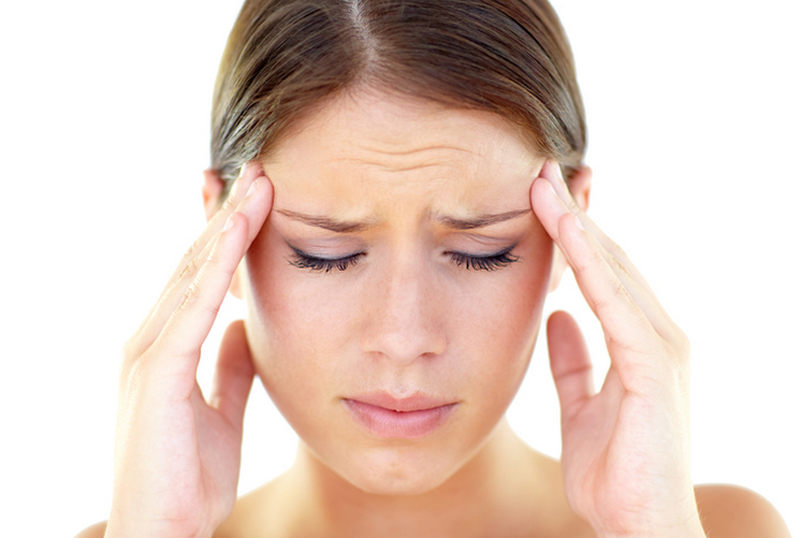Almost everyone will deal with a headache in their lifetime; in fact, it might be the most common health complaint across the globe. A headache can last for just a few minutes, or it might be severe enough to last for days and leave you unable to function. Regardless of the duration, you might often ask, why does my head hurt? Sometimes there seems to be no reason why it would be pounding, but other times, you can trace it back to a particular cause.
What to do when your head hurts depends on what is causing it. You can start by looking at the pertinent points about your headache. Ask yourself these questions and write the answers down in case you need to speak to a doctor.
How fast is it? Did it happens suddenly, out of the blue, or did it gradually appear over the span of a day or so?
Do you have the same headache every day?
Where does it hurt? Some headaches might be in the front, some in the sides, etc.
Where does it hurt the worst?
Is it a dull pain that throbs, a pain that gets worse when you move, or a pain that is sudden and sharp?
Is there anything that makes the headache worse? What makes it better?
Do you have other symptoms, such as nausea and vomiting, blurred vision, extreme fatigue, sensitivity to light, or anything else?

Common Causes of Head Hurts
Tension Headaches
These are extremely common among all ages. They usually begin with pressure in the head and neck, and gradually grow to become painful. These are often caused by stress or anxiety, such as intense issues at work or in relationships, clenching your jaw, tensing your body, or even something as simple as missing a meal. They occur because your head and neck muscles tighten, leading to increasing pressure and pain.
Migraines
These are intense headaches that can actually leave you incapacitated for several days. About ten percent of people have migraines on a regular basis, and they happen most often in women. They also tend to run in families, so if your mother had them, you might have them too. The pain is often throbbing, stabbing, and very severe, accompanied by other issues, such as nausea or sensitivity to light and sound.
Cluster Headaches
These rare headaches can be as severe as migraines. They often appear suddenly and with a great deal of pain, something that sufferers often equate to a “drilling” sensation. The pain is focused on one side of the head, sometimes in the temple or right behind the eye. They are different from migraines in that they show up at the same time every day or night.
Chronic Daily Headaches
Most people have headaches that go away rather quickly and don’t come back every day. But if you do have headaches that last all day and come back several days out of the week, you might have chronic headaches. These might be anything from mild to severe, might occur anywhere on the head, and could be aggravated by physical activity.
What You Can Do for These Head Hurts
If your headache is severe and makes your life harder with chronic pain, don't hesitate to see a doctor. Your doctor will figure out what causes your problem. Knowing what to do when your head hurts can help you get over the headache much faster. Keep in mind that treatment is two-fold; first, you should learn how to ease the pain once it starts, but you should also learn how to avoid the pain in the first place.
Generally, there are numerous pain relievers on the market today that work wonders for a headache. Simply tell any pharmacist "my head hurts" and you will be directed to a wide variety of options, including acetaminophen and ibuprofen. If you have symptoms that go along with the headache, such as nausea, there are medications for that as well. Preventative medications might be prescribed by your doctor if you are dealing with regular headaches; these might include cardiovascular drugs, migraine medications, antidepressants and more.
Before treating the pain of a very severe headache on your own, talk to your doctor about the best course of action.
Uncommon Causes of Head Hurts
The Brain Freeze
When you eat something very cold, it can affect the nerves in your mouth and head, and that can lead to serious pain in your temples. Most kids experience the “brain freeze” after eating ice cream.
Going on an Airplane
Ready for travel? Sometimes the changes in air pressure can wreck havoc on your body, including your sinuses. That can lead to a headache that has you begging to land.
Drinking Too Much
Alcohol dehydrates you. Combining that with the fact that your body can’t handle an overload of the whisky, it might lead you to have a massive hangover. This headache usually goes away with aspirin, water and time.
The Rebound
When you take a medication that knocks out your headache, why does it come back even harder a few hours later? This is the rebound effect, where your body is trying to adjust to the sudden change.
Arthritis
If you have arthritis that affects the nerves in your neck, you might suffer from severe headaches right behind your eyes. This can be really painful and should be checked out by your doctor.
Withdrawal
If you are used to having any particular thing during the day, especially caffeine, this headache can result if you suddenly stop having it.
Nitrite Headache
If you really like hot dogs or lunch meats but get a terrible headache afterward, it might be due to the nitrites, or preservatives in the meat.
In some rare cases, headaches might mean that you have a serious medical condition. If you are constantly suffering from headaches, it makes sense to see your doctor as soon as possible and ask the doctor "Why does my head hurt?" If you suffer from headache along with fever, confusion, pain in the eye or ear, loss of consciousness, or a headache after a blow to the head, seek medical help immediately – don’t wait it out!





View All Comments /Add Comment